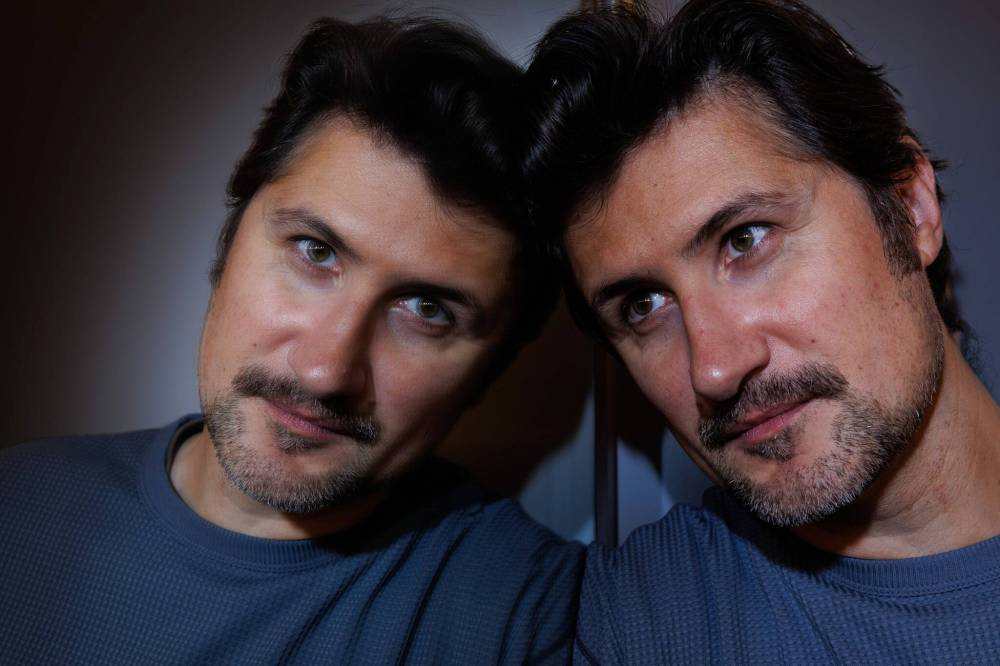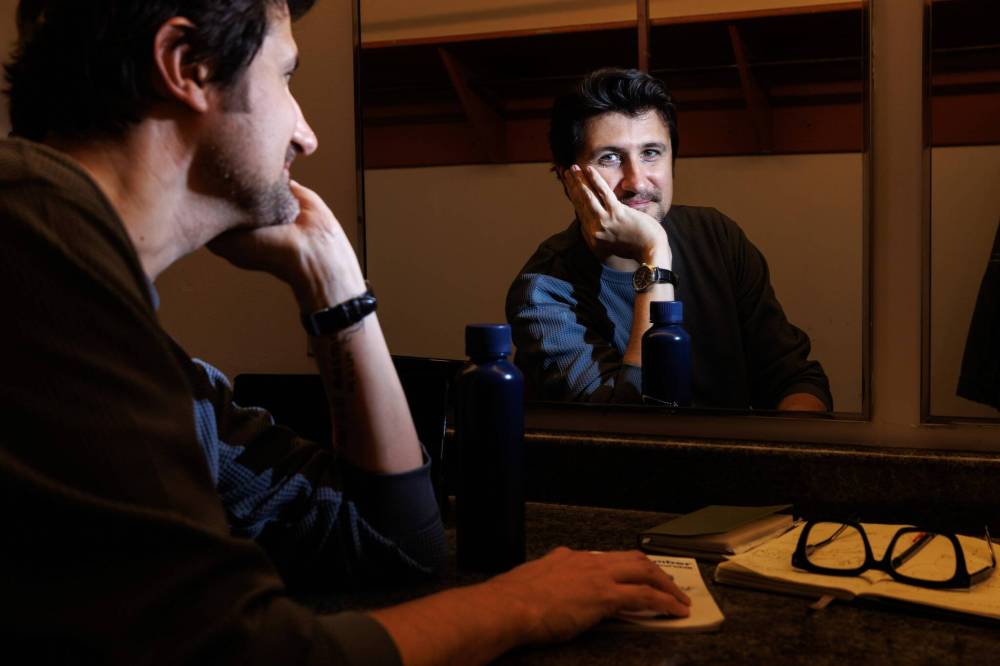Two-hander playing game of clones
Caryl Churchill thriller doubles our pleasure
Advertisement
Read this article for free:
or
Already have an account? Log in here »
To continue reading, please subscribe:
Monthly Digital Subscription
$0 for the first 4 weeks*
- Enjoy unlimited reading on winnipegfreepress.com
- Read the E-Edition, our digital replica newspaper
- Access News Break, our award-winning app
- Play interactive puzzles
*No charge for 4 weeks then price increases to the regular rate of $19.00 plus GST every four weeks. Offer available to new and qualified returning subscribers only. Cancel any time.
Monthly Digital Subscription
$4.75/week*
- Enjoy unlimited reading on winnipegfreepress.com
- Read the E-Edition, our digital replica newspaper
- Access News Break, our award-winning app
- Play interactive puzzles
*Billed as $19 plus GST every four weeks. Cancel any time.
To continue reading, please subscribe:
Add Free Press access to your Brandon Sun subscription for only an additional
$1 for the first 4 weeks*
*Your next subscription payment will increase by $1.00 and you will be charged $16.99 plus GST for four weeks. After four weeks, your payment will increase to $23.99 plus GST every four weeks.
Read unlimited articles for free today:
or
Already have an account? Log in here »
Even though the play premièred in 2002, starring Daniel Craig and the late Michael Gambon, Royal Manitoba Theatre Centre’s version of the cloning thriller A Number is an original copy.
That’s by Caryl Churchill’s design. Aside from upholding the interlacing dialogue between a father (Victor Ertmanis) and his son (Rodrigo Beilfuss), the Obie-winning playwright leaves the rest up to interpretation. Though each successive production shares the same script, Churchill’s complete eschewal of stage direction and design notes allows for individuated artistic mutations: no two snowflakes are alike.
“All she tells us is, ‘Here are the characters,’ their ages and that the whole play takes place in the father’s home,” says Beilfuss, who, as the artistic director of Shakespeare in the Ruins, is accustomed to more clearly delineated instructions. “But that’s it — we get to come up with everything else. Could they be drinking in the scene? Does the father use a cane? Could one of the sons be wearing a baseball cap?

MIKE DEAL / FREE PRESS
Rodrigo Beilfuss plays Bernard in cloning thriller A Number.
“Basically, we’re creating this play, our own version of it, our own world.”
The template for that world was established by Churchill after the birth of Dolly the sheep, who was successfully cloned by fusing mammary cells from a Finn-Dorset ewe with an enucleated egg cell.
Decades after Nobel-winning British scientist Sir John Gurdon, who died on Oct. 7 at 92, carried out a similar experiment with frogs, leading to the healthy development of a cloned tadpole, Dolly’s emergence captured the public imagination.
For Churchill, the realized potential of large-species cloning offered an ideal gateway toward the exploration of personality as endowed through both nature and nurture through the conversational prism of parent and child (and child) ((and child)).
In the years since Dolly’s death in 2003, cloning hasn’t gone away. Earlier this month, in a news release issued by genetics firm Colossal Biosciences, former NFL quarterback Tom Brady (and Colossal investor) announced that the dog he’s been walking since his retirement from the gridiron was the furthest thing from a shelter rescue: Junie is a clone of Lua, a pitbull mix who died in 2023, produced using the same proprietary technology that introduced Dolly in 1997.
Other clients who’ve kept their old dog using these new tricks include socialite Paris Hilton and singer-actor Barbra Streisand.
“I was so devastated by the loss of my dear Samantha, after 14 years together, that I just wanted to keep her with me in some way,” Streisand wrote in the New York Times in 2018. “It was easier to let Sammie go if I knew I could keep some part of her alive, something that came from her DNA.”
Meanwhile, the surging development of artificial intelligence predicts a new type of digital cloning: actors Michael Caine and Matthew McConaughey have signed deals with New York’s ElevenLabs to officially license their voices for AI-generated uses, the Guardian reported Tuesday.

MIKE DEAL / FREE PRESS
A Number’s open-ended stage and design directions put character control in the hands of actor Rodrigo Beilfuss and his co-star, Victor Ertmanis (not shown).
“For years, I’ve lent my voice to stories that moved people — tales of courage, of wit, of the human spirit,” the 92-year-old Caine said in a statement. “Now, I’m helping others find theirs. With ElevenLabs, we can preserve and share voices — not just mine, but anyone’s.”
Churchill’s play, says Beilfuss, is being shared in an uncanny present where these realities are no longer quite as far-fetched. And even if cloning your elderly dog isn’t in your financial cards (the procedure Brady paid for costs upwards of $50,000), or AI deepfakes give you the heebie-jeebies, the play still opens up potent conversations about choice, sibling rivalry and the all-powerful allure of the scot-free do-over.
“It’s a psychological thriller about cloning, but really, it’s an intimate chamber piece about parenting, about love and second chances,” Beilfuss says. “All of us would love second chances in our lives and all of us have regrets.
“If you don’t have regrets, you really have not assessed your life.”
ben.waldman@freepress.mb.ca

Ben Waldman is a National Newspaper Award-nominated reporter on the Arts & Life desk at the Free Press. Born and raised in Winnipeg, Ben completed three internships with the Free Press while earning his degree at Ryerson University’s (now Toronto Metropolitan University’s) School of Journalism before joining the newsroom full-time in 2019. Read more about Ben.
Every piece of reporting Ben produces is reviewed by an editing team before it is posted online or published in print — part of the Free Press‘s tradition, since 1872, of producing reliable independent journalism. Read more about Free Press’s history and mandate, and learn how our newsroom operates.
Our newsroom depends on a growing audience of readers to power our journalism. If you are not a paid reader, please consider becoming a subscriber.
Our newsroom depends on its audience of readers to power our journalism. Thank you for your support.


